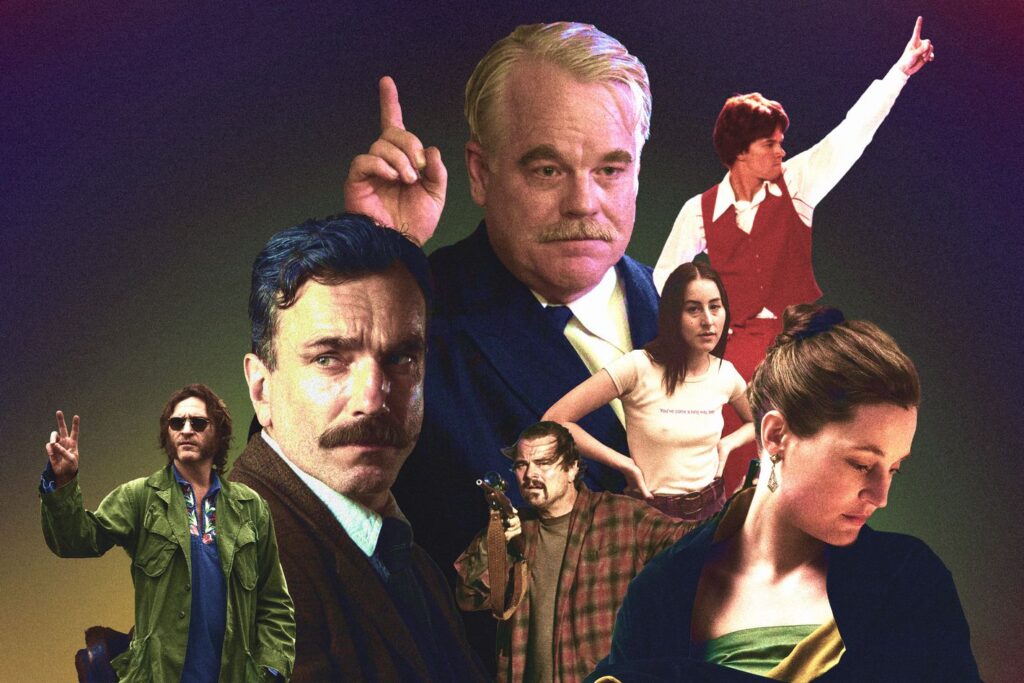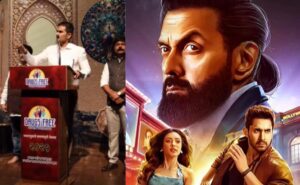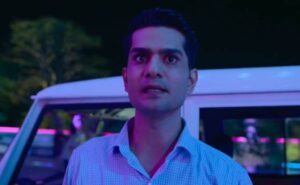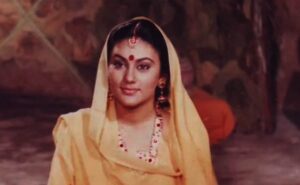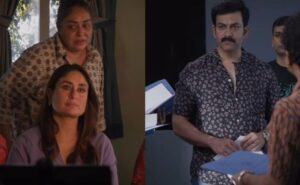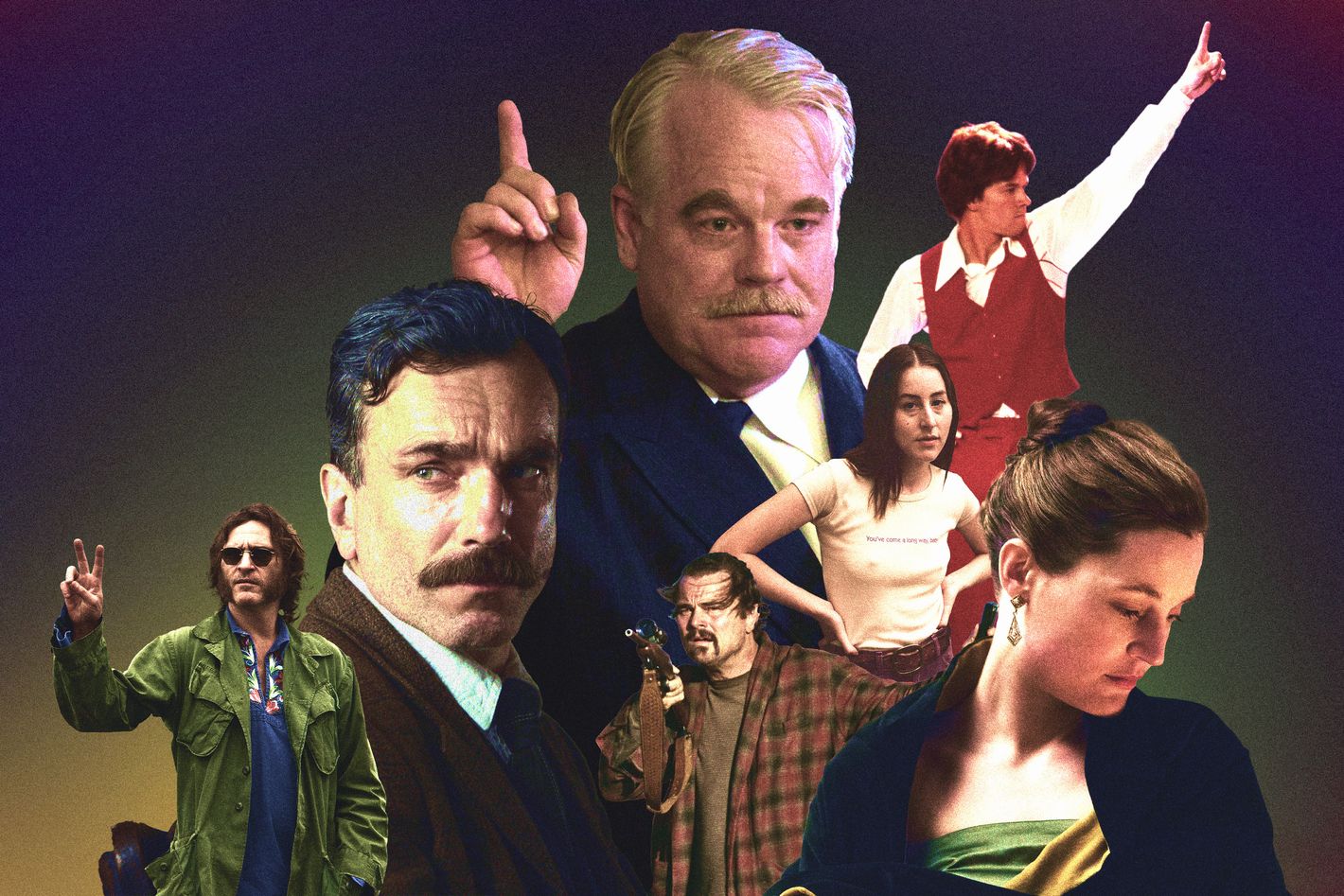
There aren’t that many American auteurs, mostly because the movie industry doesn’t want them. And yet, Paul Thomas Anderson doesn’t just exist — he keeps turning out brilliant, sprawling, strange features he’s able to convince studios to fund despite their rarely coming close to turning a profit. Ever since he got his start in 1993 with a short he paid for with college-tuition money and his girlfriend’s credit card, PTA’s been making the kind of movies that Hollywood keeps insisting it’s not interested in anymore, though it can’t seem to help itself in terms of staying away. (There’s a maybe-apocryphal story about one executive wondering to another about how he ended up getting stuck producing the latest Anderson affair, and being told that it was simply his turn.)
Talent like Anderson’s apparently defies all business sense, though it probably doesn’t hurt that he fits the image and that his career, which has bounced from sprawling ensemble dramas like Magnolia to perverse romances like Phantom Thread, has kept coming back to show business in different ways, from the nostalgic high jinks of Licorice Pizza to the porn epic that is Boogie Nights. It comes with the territory, that territory being California. PTA is a true bard of the Golden State in all the glitzy aspirations and tough realities it represents, especially when it comes to the San Fernando Valley, where he was born. Some of his best films are about the West as the true testing ground for the American dream, a place where new faiths are born alongside the time-tested ones of fame and fortune.
But which films are the best? Anderson has been responsible for some of the greatest ones of the 21st century, and even his off titles are pretty good, which makes ranking his work a particular challenge. But with his new movie, One Battle After Another, reaching theaters this week, there’s never been a better time to give it a try.
Hard Eight (1996)

Hard Eight, né Sydney, was Anderson’s first full-length film, and it feels like one — brash, promising, and out of its depth when it comes to its universe of hard-bitten casino regulars, sex workers, and extortionists. Anderson was only in his mid-20s when he expanded a 1993 short he’d made called Cigarettes & Coffee into a feature about an older gambler named Sydney who takes a drifter under his wing, and Hard Eight makes his talent as obvious as the fact that he’d seen a lot more movies about seedy underbellies than he has spent real time in any himself. Still, there at the film’s center is an incomparable Philip Baker Hall giving the performance of his life as a man so steeped in world-weariness it soaks the frame around him. Sydney’s seen everything, and yet he continues to be capable of flashes of tenderness and brutality that surprise even himself. A babyfaced John C. Reilly is good as Sydney’s naïve protégé, John, as is Gwyneth Paltrow as John’s bruised object of affection, a cocktail waitress named Clementine who, when faced with a chance at happiness, veers right into self-destruction. But the best testament to Anderson’s incredible eye for actors is the presence of Philip Seymour Hoffman as a preening player who taunts Sydney into placing a big bet at the craps table — a standout in a single scene, and someone who, like a lot of the actors in this film, would go on to work with the director again to great effect.
Licorice Pizza (2021)
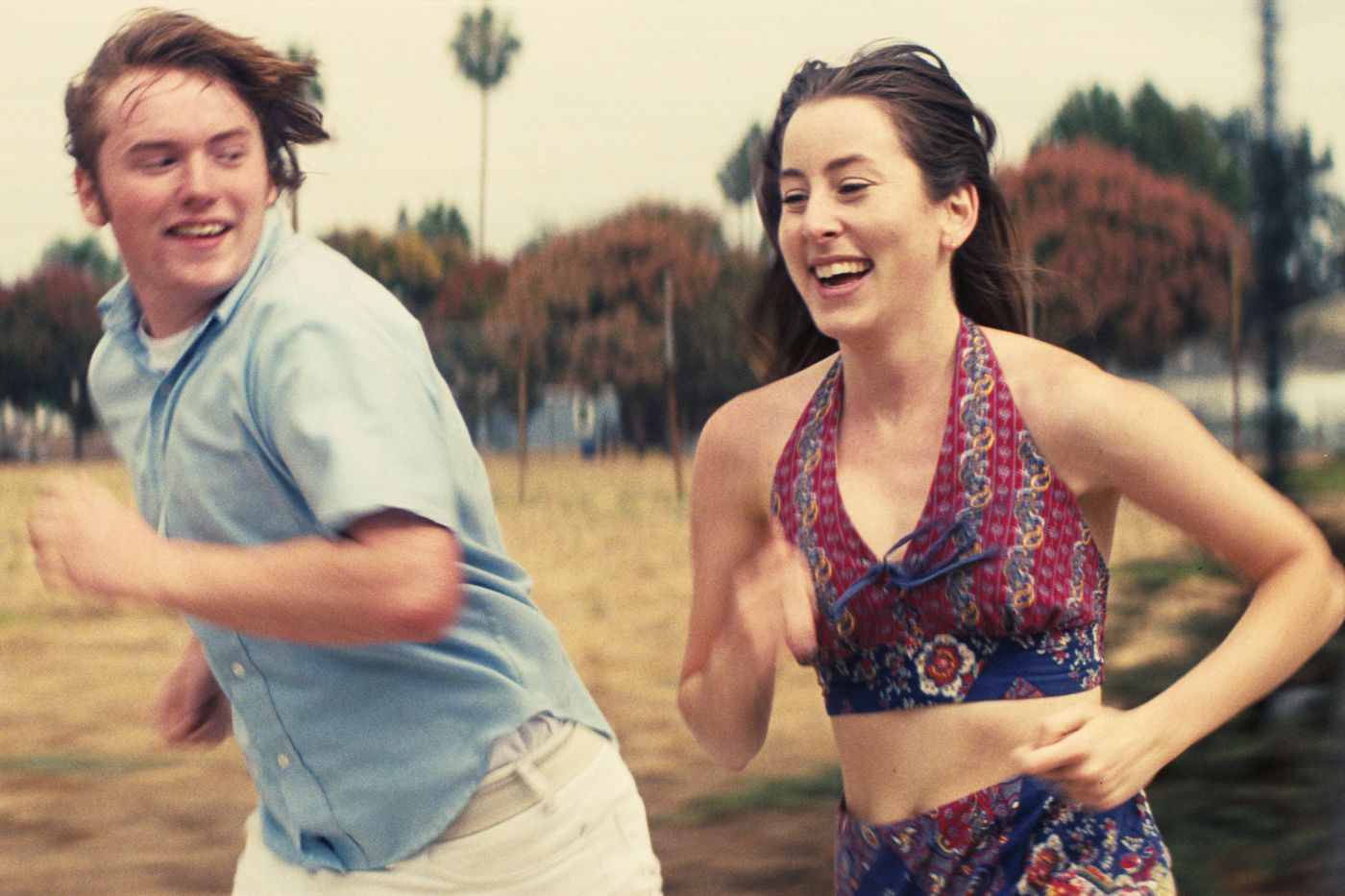
Whatever criticisms you might care to lodge against the romance between 15-year-old Gary Valentine (Cooper Hoffman) and 25-year-old Alana Kane (Alana Haim) in Licorice Pizza are built into the movie itself. Gary is a teenager trying to pretend that he’s an adult, while Alana is a 20-something longing to retreat from an adult world that’s proven hostile and confusing. They don’t get together so much as they intersect thanks to their respective efforts at acting something other than their actual ages, and the movie is more love letter to the San Fernando Valley of the ’70s (recreated in irresistible detail!) than legit love story anyway. Still, one of the reasons the film feels like the rare misfire from Anderson is that, despite all the charms of its various episodes — Harriet Sansom Harris as a chain-smoking talent agent declaring Alana’s “very Jewish nose” to be increasingly fashionable, Sean Penn as a leathery William Holden equivalent jumping over a flaming sand trap on a motorcycle outside the Tail o’ the Cock restaurant — the temptation to indulge in nostalgia throughout Licorice Pizza overwhelms the film’s evident desire to gently critique it. The whole thing ends up being the equivalent of Alana hurling herself into Gary’s arms during the film’s off-kilter recreation of a Hollywood ending: an outrageous punchline that lacks actual punch.
Magnolia (1999)
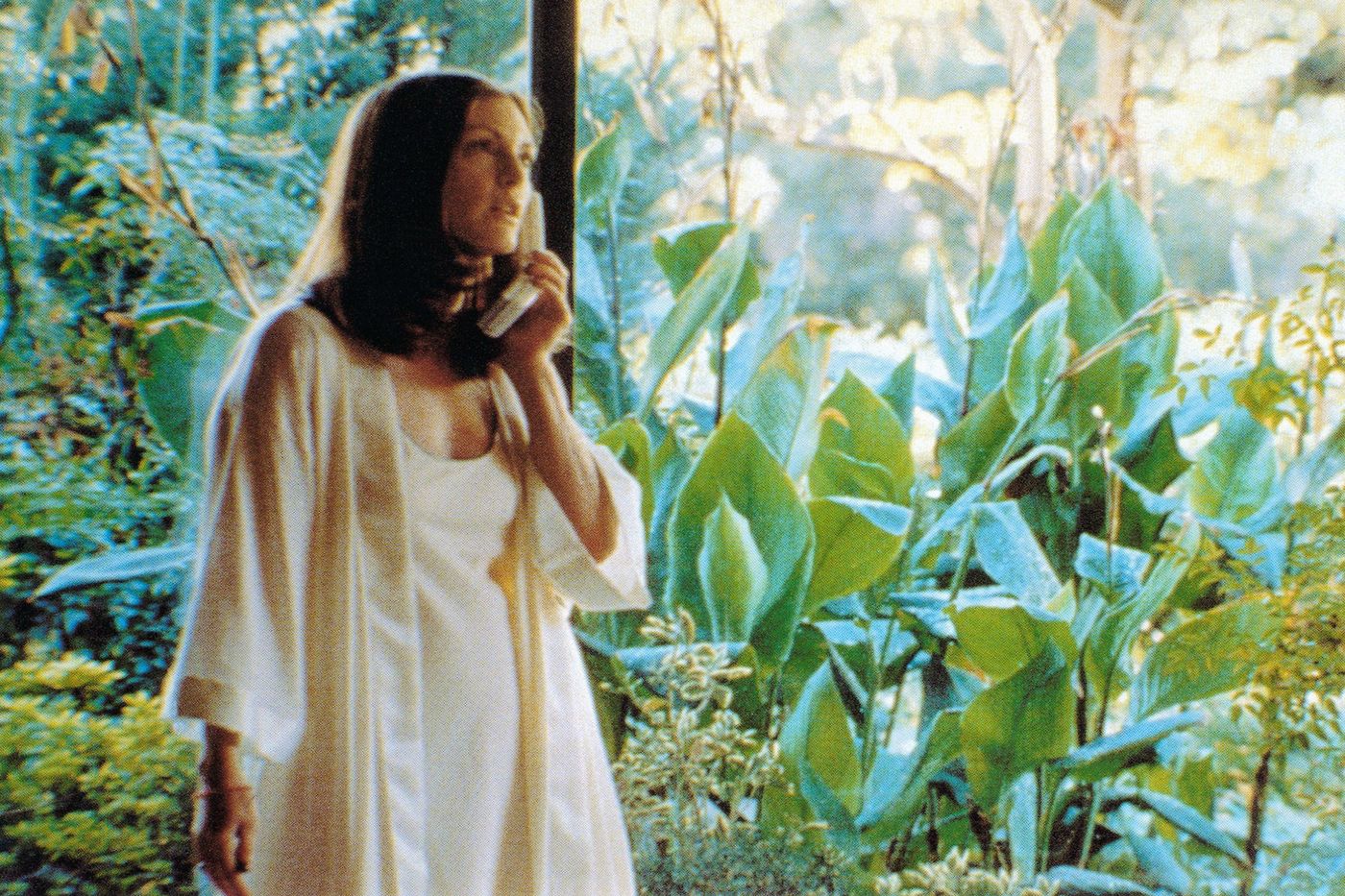
We’re all friends here, so can we admit that PTA’s third feature includes at least one terminally old TV patriarch and tragic drug-addled hysteric too many? Anderson’s 1999 ensemble drama thrums with the need to announce itself as a big movie, from its biblical references to its three-hour runtime to the way it weaves together no fewer than nine intersecting storylines across the Valley, presenting a tapestry of characters who are unknowingly united in their feelings of isolation and yearning. The marvel of it is the way that it, more often than not, succeeds in that goal, especially when its themes reverberate across its intercut scenes, from a shockingly great Tom Cruise giving a dead-eyed proto-manosphere speech onstage to Jason Robards as his dying father talking about how he regrets the way he treated his family. The too-muchness is part of Magnolia’s appeal, its way of banging out the cinematic equivalent of a power chord, though it also suggests that Anderson hadn’t yet learned to trust his audience, especially in the case of Julianne Moore, who’s so incredible in Boogie Nights but who ends up the worst off as Robards’s gold-digging young wife. It’s a part that consists entirely of award-reel speeches, though her meltdown in the pharmacy — “I have sickness all around me and you fucking ask me about my life?” — is an all-timer.
Inherent Vice (2014)
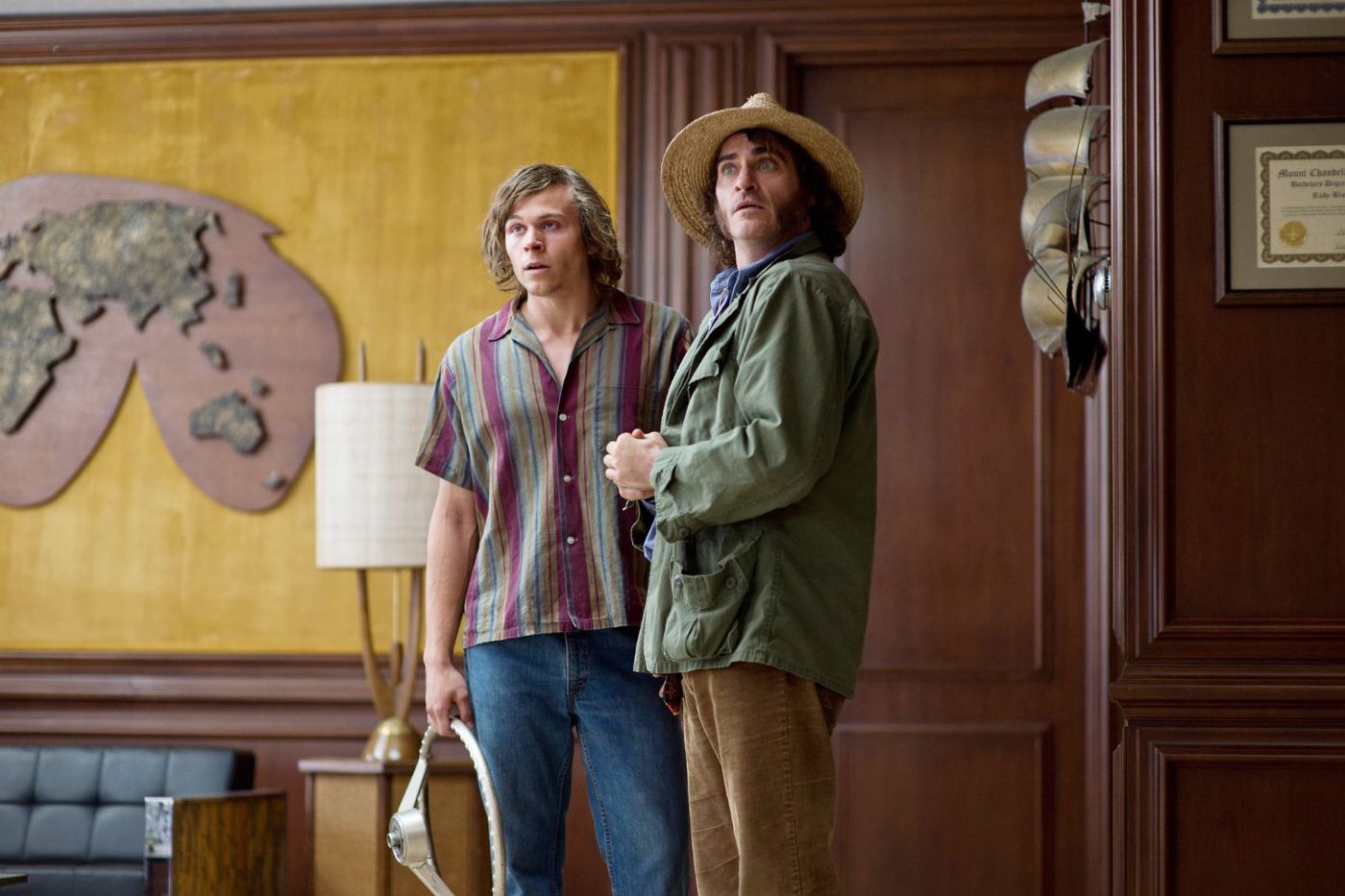
Anderson’s taken two runs at Thomas Pynchon now, with Inherent Vice being the more straightforward adaptation — a satirical sunshine noir about how private eye Larry “Doc” Sportello (Joaquin Phoenix) becomes entangled in a ridiculously convoluted web of criminal conspiracies involving, among other things, a missing real-estate developer, a cult, and a drug-smuggling ring. Inherent Vice gets shrugged off as minor PTA, the director’s take on a stoner shaggy-dog story that uses its central mystery, if there even is one, as an excuse to introduce an unending array of colorful characters played by the likes of a cartoonishly flat-topped Josh Brolin and a terrific Hong Chau in her breakout role as a matter-of-fact massage-parlor employee. But there’s a profound melancholy saturating this movie that makes it more than just an intentionally impossible-to-follow, cannabis-suffused lark. As Doc’s ex Shasta, a sun-bleached femme fatale who wanders in asking for help and promising trouble, Katherine Waterston embodies a mournful sense of innocence lost. It’s 1970, the lingering traces of the Summer of Love are dissipating like smoke from a finished joint, and Doc and Shasta are looking less like hippies and more like two people who’ve woken up the morning after a party with an enormous mess to clean up.
Punch-Drunk Love (2002)
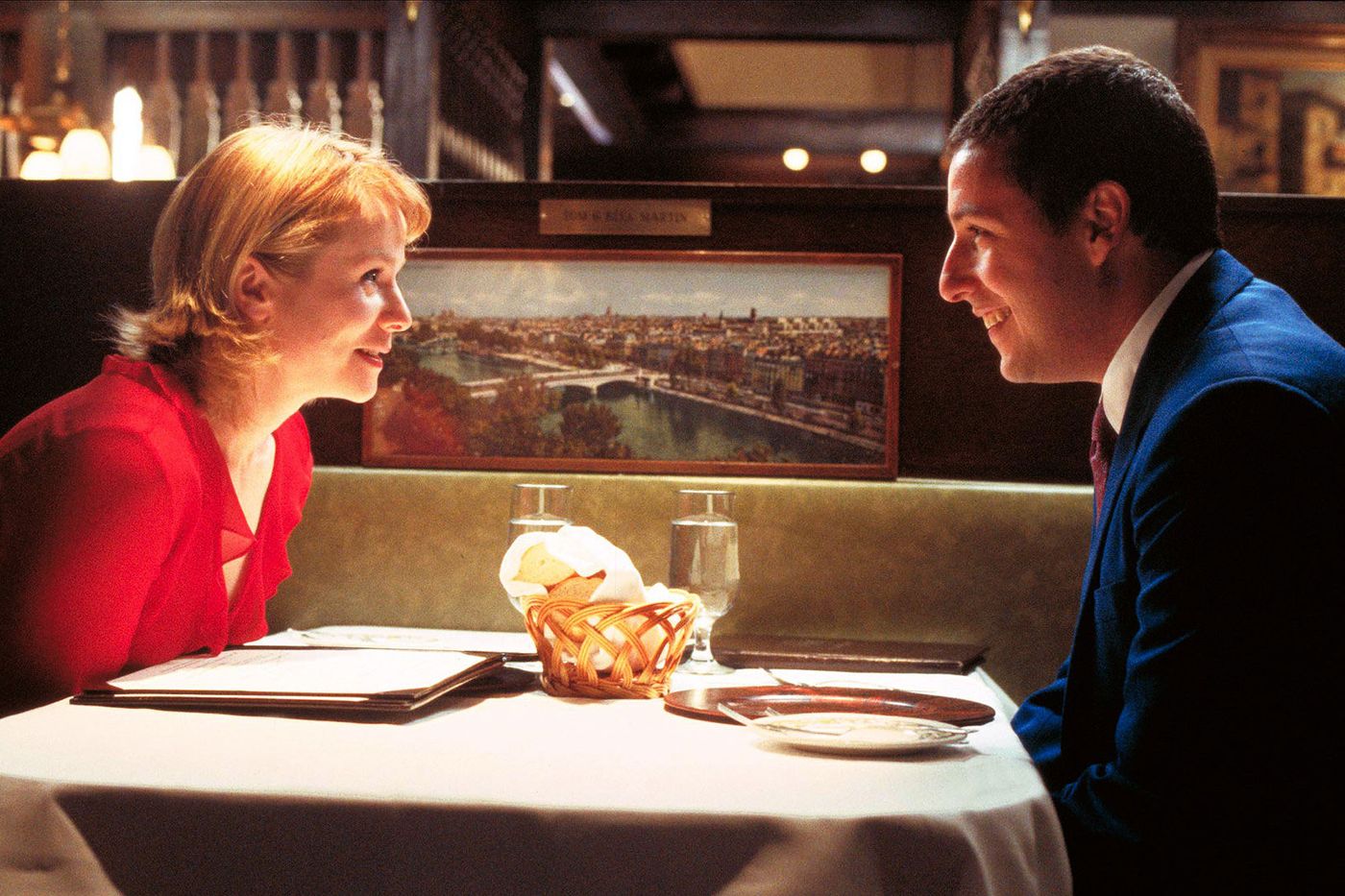
Years before Uncut Gems transformed Adam Sandler’s short-tempered comedic persona into the propulsive force behind a thriller, Punch-Drunk Love turned the funny man into an unlikely romantic lead. Barry Egan, a coupon-obsessed novelty-items salesman with seven overbearing sisters, may suffer from some very Sandler-esque rage issues and incoherence, but he’s also fumblingly sweet in a way that leaves no mystery about why Lena Leonard, the love interest played by Emily Watson, would be interested in him despite the awkwardness. Sandler, stalking around Punch-Drunk Love in his bright-blue suit, represents another of PTA’s feats of imagination and persuasion when it comes to enlisting talent. But, 23 years later, what stands out about the movie and makes it so enduring is the way it sits at the cusp of the youthful ambition Anderson embodied until this point and the more experimental territory he’d go on to explore. Punch-Drunk Love’s restlessness really gives you a sense of what it’s like to be inside Barry’s head, where the roar of his own self-loathing and anxiety threatens to drown out everything around him. The wonderfully limbolike setting, from the industrial outskirt where Barry’s business is based to the sparsely furnished apartment in which he lives, isn’t bleak but a representation of a life in transition — as though any moment now, the whole world could split open around him and release him into a situation that’s entirely new.
One Battle After Another (2025)
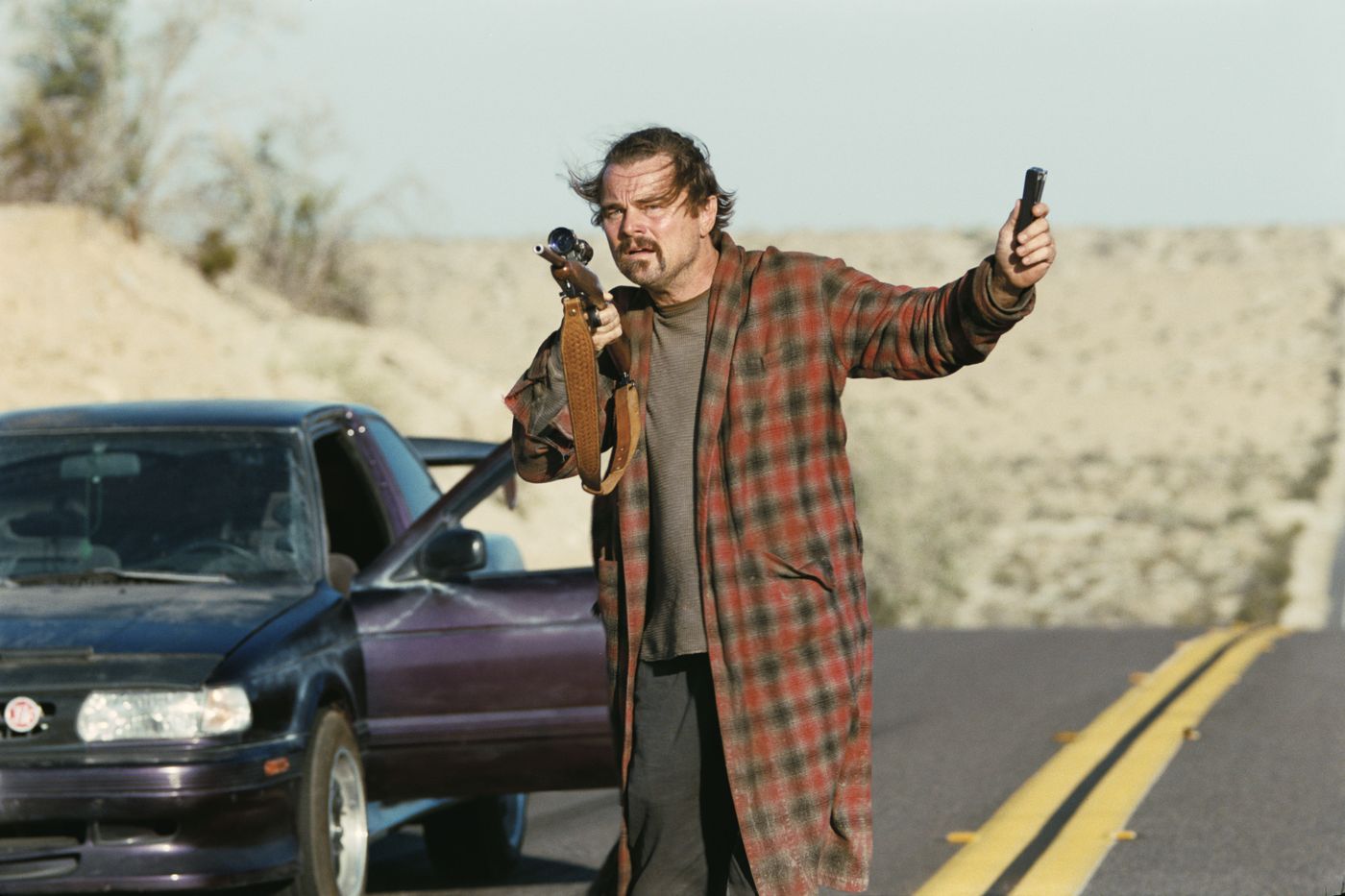
PTA’s latest film is his second attempt at Pynchon and, somehow, also his most commercial effort in years, a rollicking action-comedy starring Leonardo DiCaprio as Bob Ferguson, a former radical who’s set aside the bombs and revolutionary fervor in favor of going into hiding with his teenage daughter, Willa (Chase Infiniti). It’s effectively a riff on Terminator 2: Judgment Day, complete with Sean Penn’s fetlocked Colonel Steven J. Lockjaw — a racial fetishizing, wet-lipped caricature of military machismo — as its answer to the relentless T-1000. But it’s also still chock-full of Andersonian textures, from the revelation that its secret white-supremacist cabal happens to be Christmas-themed to the presence of Benicio del Toro as the dojo-owning leader of its sanctuary city’s migrant underground railroad. Even when its director is showing off his faculty for exciting set pieces, the sequences feel distinctively his, like the one in which del Toro serenely musters his forces and directs the dozens of women and children he’s been sheltering to safety through a secret tunnel while DiCaprio flails after him, trying to figure out a place to charge his phone. One Battle After Another is thrilling and bitterly funny, but it also offers a much-needed dose of unsentimental optimism in the way it depicts the fight for a better world — as something that never ends, and that’s always been taken up by new members as the older ones fall away.
Boogie Nights (1997)
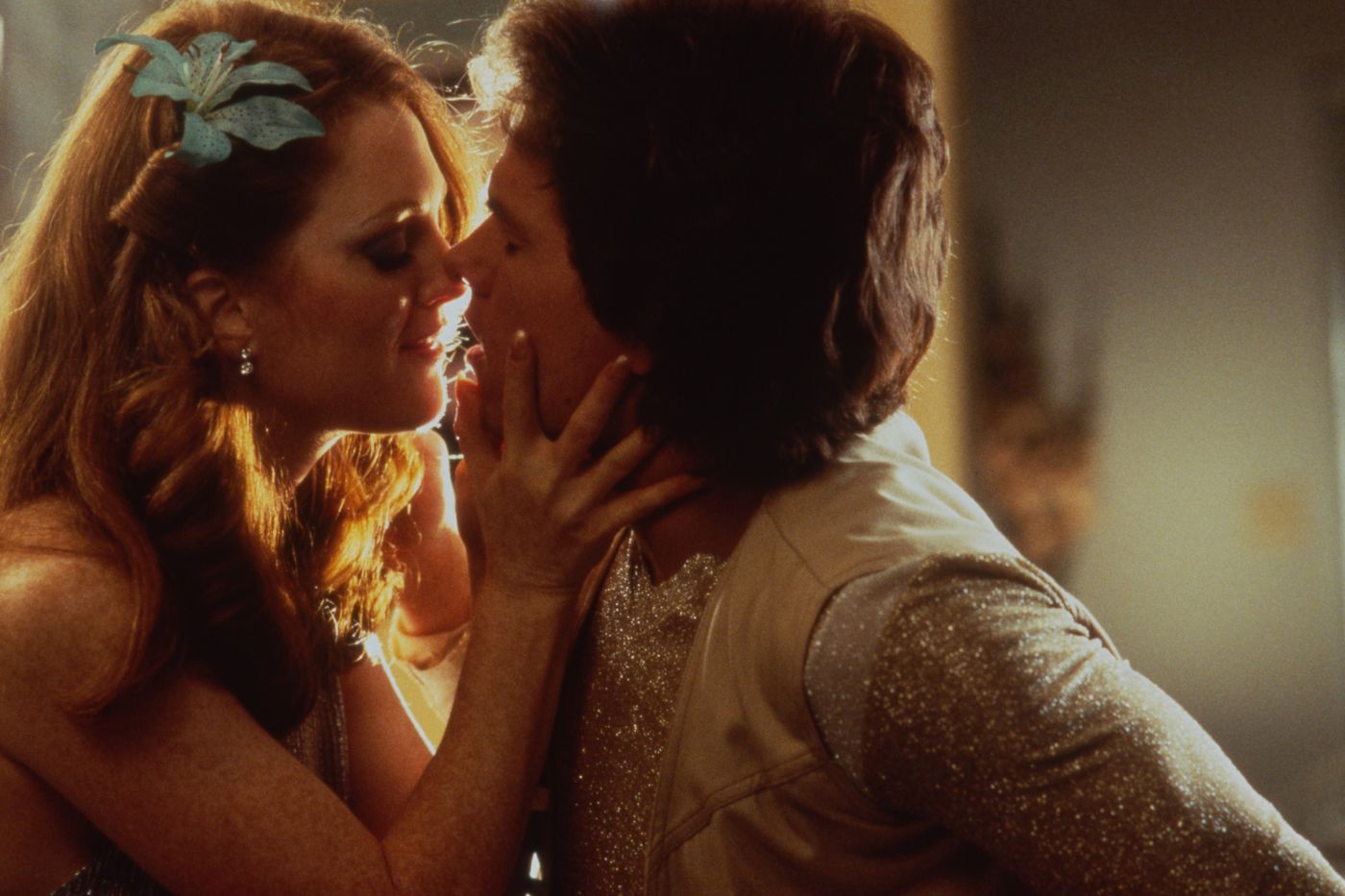
Of all of the casting coups that Anderson has pulled off over the years, the most impressive is still Mark Wahlberg’s turn as Dirk Diggler. Anderson saw something in the artist formerly known as Marky Mark, who’d only made the transition from musical artist to actor three years earlier, that Wahlberg still doesn’t see in himself, if his disavowal of the movie is any indication. Wahlberg plays a holy fool in Boogie Nights, our naïve but well-endowed guide through the heyday of theatrical pornography and its decline into something cheaper and tawdrier courtesy of the triumph of VHS. Boogie Nights is, like so many of Anderson’s films, about loss and the feeling that the good times are slipping away before they can even be appreciated. But it’s also just an astonishingly rich text, a saga about how the X-rated film world becomes a temporary but genuine found family for Dirk, with Amber Waves (Julianne Moore) and Jack Horner (Burt Reynolds) as the affectionate, damaged surrogate parents. As with Licorice Pizza and Magnolia, the outskirts of Hollywood prove to be infinitely more interesting to Anderson than its glitzy center, and Boogie Nights offers up the ultimate viewpoint on that — an industry that, even at its highest point, was never going to break through into the mainstream.
There Will Be Blood (2007)
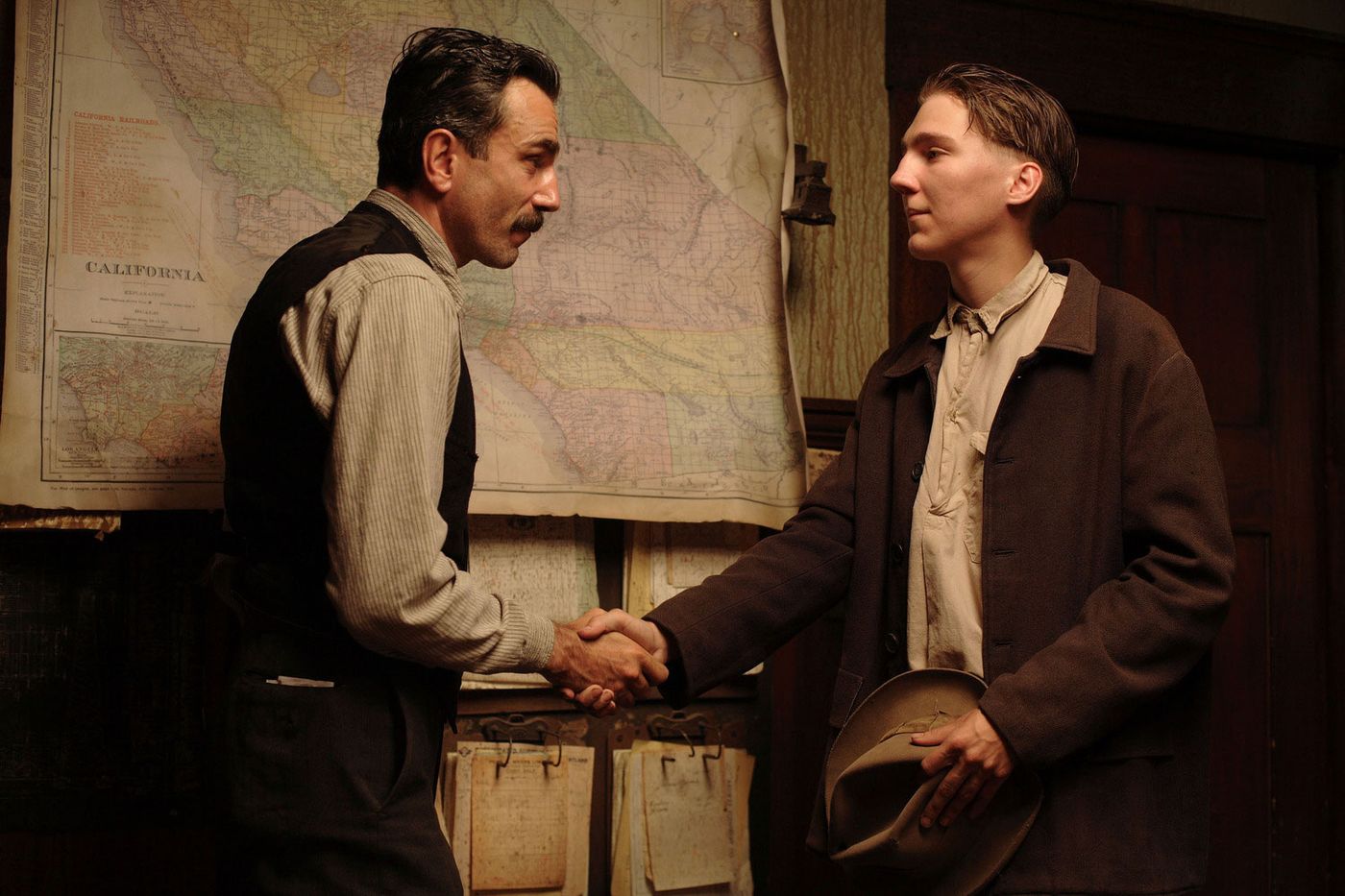
The first time we see Daniel Plainview, the oilman played by Daniel Day-Lewis in Anderson’s 2007 drama, he’s mining for silver by himself in New Mexico, trying to yank his fortune and some finer version of himself out of the dirt. There Will Be Blood feels like it’s trying to do something similar, to carve a new filmic language out of existing cinematic history by sheer force of will. It is, from a distance, a familiar instance of national mythmaking, the story of a self-made man who claws his way into wealth through hard work and ruthlessness at the turn of the 20th century, only to find that money isn’t a guarantee of fulfillment or happiness. But that doesn’t give a sense of how absorbingly otherworldly the film is, with its wordless beginnings and its shriek of a score from Jonny Greenwood. Plainview isn’t an actual man so much as he’s a void in the shape of one, and Day-Lewis leans into that terrible hunger like a figure out of a horror movie, playing the character as someone who’s willingly hollowed himself out and shed all his soft parts to become some sort of elemental instead. Where Magnolia needed to announce its ambition in every frame, There Will Be Blood simply exists, never having to signal its intentions to be a great American film, though it unquestionably is.
Phantom Thread (2017)
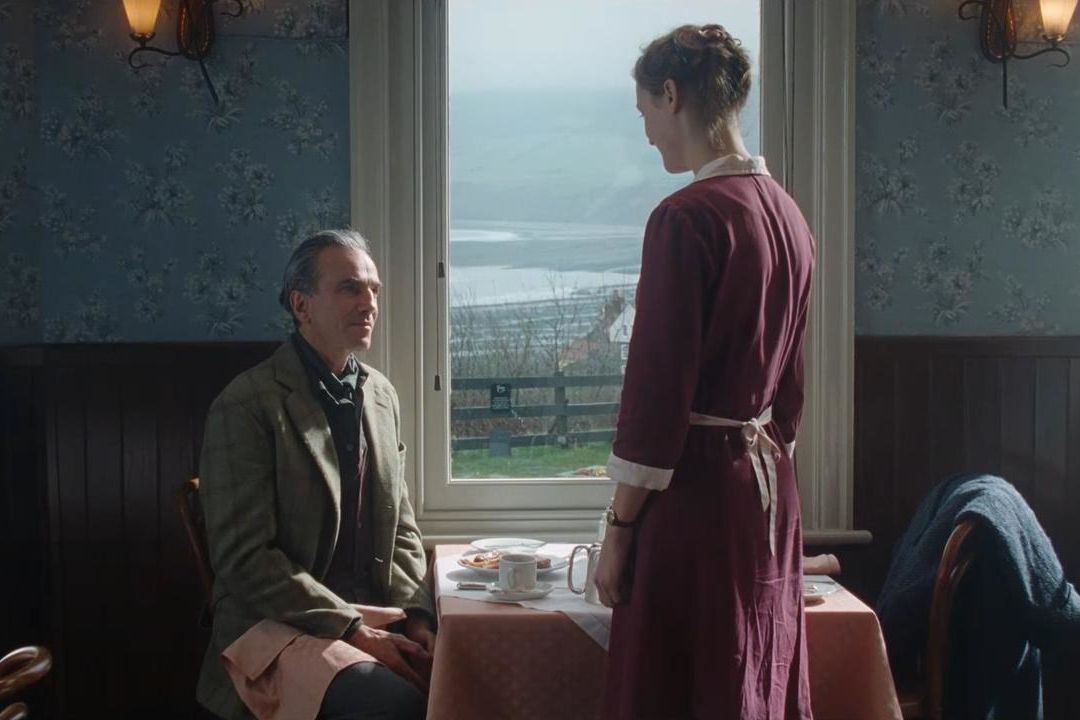
Phantom Thread is the most romantic movie to ever feature a consensual poisoning by omelet, though I realize the field of competition there is pretty small. Still, the moment in which tyrannical couturier Reynolds Woodcock (Day-Lewis) realizes Alma Elson (Vicky Krieps) has put toxic mushrooms in his meal and eats it anyway while declaring “Kiss me, my girl, before I’m sick” is one of the most satisfying admissions of affection I’ve ever seen onscreen. Phantom Thread is a masterfully claustrophobic portrayal of a ’50s fashion house, as well as a nuanced depiction of a petty despot ruling over his small kingdom. But more than anything, it’s a love story as a battle, with Alma laying siege to the sealed-off life Reynolds has established for himself until he eventually allows her in to share his existence. Reynolds is a tetchy tyrant, who, enabled by his sister, Cyril (Lesley Manville), has embraced a need to have things just so as a means of warding off vulnerability. But Alma turns out to be so much more determined than could ever have been guessed from the pair’s first encounter at the restaurant where she served him an enormous breakfast, and she refuses to be another muse and helpmate to be discarded. Instead, Phantom Thread is a tribute to relationships as an act of mutual surrender, as well as to the specifics of two people whose weirdnesses just match up. Is it based on Anderson’s marriage to Maya Rudolph? He’s said “Not really, but kind of sort of” — which makes perfect sense.
The Master (2012)
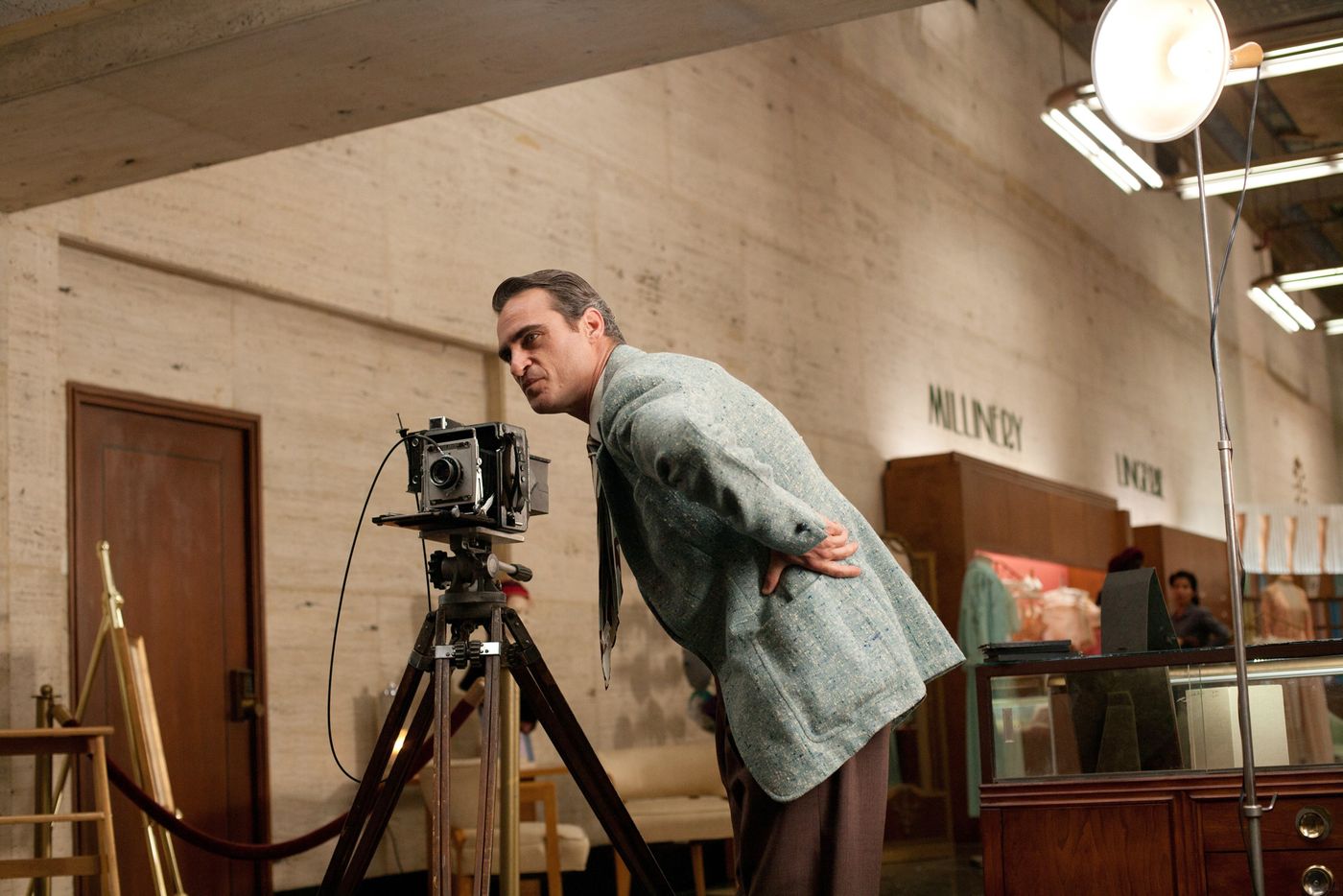
There’s really never been a performance like the one Joaquin Phoenix gives as Freddie Quell, a Navy vet who emerges from the war shattered and strange but who may have always been that way. Freddie is fascinatingly feral, his face full of unsettling creases — a man who exists from moment to moment and who acts on his impulses, whether they tell him to assault a customer at the department store where he’s working or jerk off into the surf. His inner self is right there and raw at the surface, leaving him incapable of dissembling, which is why Lancaster Dodd likes him so much. Dodd, played by a spectacularly preening Philip Seymour Hoffman, is The Master’s answer to L. Ron Hubbard, and he sees in Freddie a chaotic mascot, but also a test case for the religion he’s been crafting, one that could surely become real if it could win over someone like that. Freddie is a counterpoint to Daniel Plainview, a similarly alchemical creation, but one who’s all id, at one point driving away from Dodd across the salt flats and leaving him for years, and then finding his way back to his side for a confrontation that feels like a dream. Anderson’s filmography is full of bangers, but the top titles on this list are on a whole other level, masterpieces that feel like they sprang right out of his head, works so personal and singular that to experience them feels unbearably intimate. The Master is the greatest of them all, a movie peopled by characters who are at once intensely human and also the stuff of otherworldly fables. Watching it is like seeing the world from a new, upsetting, moving angle.
Related
One classic after another.

